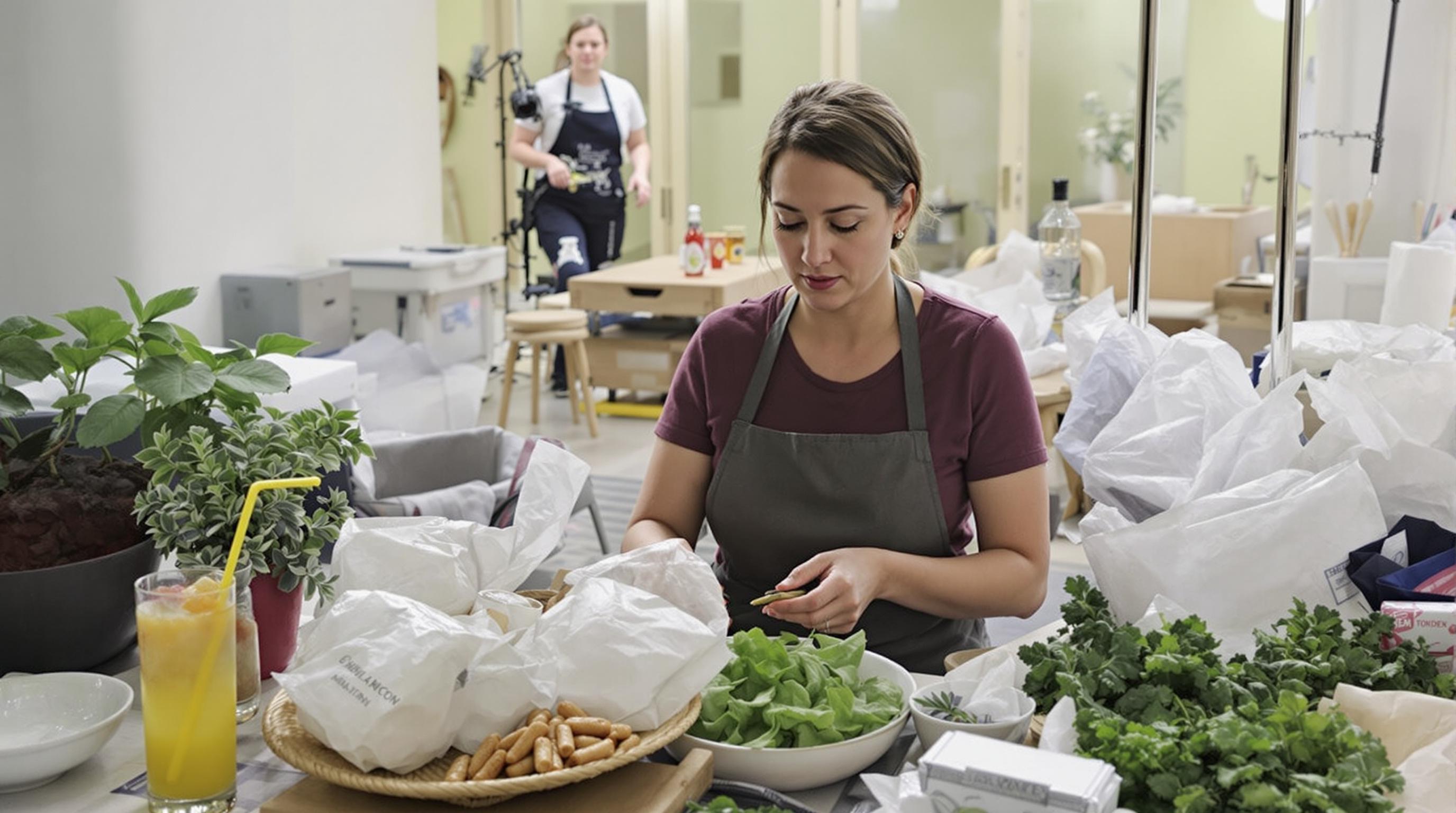Related Articles
- Navigating Ethical Travel: The Role of Arts and Crafts in Supporting Local Economies and Cultures
- Rediscovering Ancestral Routes: How Ancient Trails Offer Insights into Sustainable Travel Practices
- The Ethical Dilemma of Luxury Travel: Splurging or Supporting Sustainable Development?
- Navigating Ethical Dilemmas: The Quest for Authenticity in Local Food Experiences While Traveling
- Beyond the Facade: Exploring the Subsurface Infrastructure of Iconic Historical Structures
- Curiosities Unearthed: The Surprising Connections Between Historic Sites and Modern Art Movements
Navigating Ethical Dilemmas: The Quest for Authenticity in Local Food Experiences While Traveling
Navigating Ethical Dilemmas: The Quest for Authenticity in Local Food Experiences While Traveling
Exploring local food experiences while traveling poses ethical dilemmas around authenticity and cultural representation. This article delves into these complex issues, offering insights to help navigate the quest for genuine culinary adventures.
The Allure of Local Cuisine
Imagine stepping off a bustling street in Bangkok, the air thick with the aroma of herbs and spices, and wandering into a small food stall run by a local grandmother. This moment, rich in sensory experience, is often what travelers seek when diving into new cultures. Local food isn’t just fuel; it's a form of storytelling, a reflection of the community's history, traditions, and daily life.
Understanding Authenticity
The term "authenticity" itself can be loaded. What makes a dish authentic? Is it the use of traditional ingredients, the method of preparation, or the context in which it’s eaten? According to a study published in the *Journal of Ethnic Foods*, 78% of travelers desire "authentic" culinary experiences, but defining what that means varies widely among individuals and cultures (Kang et al., 2022). In this quest, travelers often face ethical dilemmas. What happens when a chef modifies a recipe to suit foreign tastes? Is that still authentic?
The Rise of Food Tourism
Food tourism is booming. In the past decade, it has grown into a multi-billion dollar industry. Reports from the United Nations World Tourism Organization (UNWTO) point out that 30% of travelers actively seek gastronomic experiences, showcasing how our palates drive our wanderlust (UNWTO, 2019). This rise presents an opportunity to celebrate diverse culinary traditions but also raises questions: Are these experiences truly representative of local cultures, or are they curated spectacles aimed at satisfying tourists?
The Case for Sustainable Practices
As the traveler’s quest for authenticity intensifies, local food systems often undergo pressure to adapt. However, this necessity isn't always helpful. Ethically produced food—linked to sustainability practices—emerges as a prime example of how consumers can shape the culinary landscape. Supporting local farmers and producers not only provides travelers with authentic experiences but also fosters sustainable practices that benefit local economies. For instance, a chef in Oaxaca, Mexico, famously sources all ingredients from local farmers, thus promoting both ecological and cultural sustainability.
Real Stories from the Road
Meet Sarah, an adventurous foodie from Melbourne. On her trip to Italy, she decided to seek out grandmotherly kitchens where traditional pasta was made by hand, ignoring the glossy, tourist-laden trattorias. Her quest led her to a small town in Tuscany, where she found Maria, a nonna who made pici, a hand-rolled pasta. A rich, heartwarming story unfolded over the kitchen table as they shared laughs and stories—culinary authenticity as it should be! Sarah left with not just a recipe but an experience that cemented a bond with a culture.
Irony of Popularity
How often do we crave what makes us feel different and exotic until it loses what made it so in the first place? This ironic twist is central to food tourism. As travelers flock to the same Instagrammable cafés and renowned markets, the small family-owned stalls struggle to retain authenticity. Notably, a famous Mexican street taco stand that was once popular with locals began to lose its essence after being featured on a popular food show. The result? Long queues of tourists demanding a specific experience that can overshadow the very reasons for its original appeal.
The Ethical Dilemma of Participation
How much cultural appropriation occurs when a dish is commercialized? This question haunts many in the food tourism industry. Participating in local culinary traditions often means walking a tightrope between appreciation and exploitation. For instance, cooking classes offered to tourists can sometimes dilute the real cultural significance of the cuisine, as the experience becomes commodified. A study by the Culinary Institute of America found that 60% of chefs support culinary tourism, but they also express concerns about the homogenization of their culinary traditions (CIA, 2020).
The Role of Technology
In an age of social media, individuals can influence perceptions of authenticity. With the swipe of a finger, a photo of an artisanal dish can be shared with thousands, shaping trends in how we consume local cuisines while traveling. While technology allows for greater distribution of culinary experiences, it can also lead to a superficial understanding of cultural contexts. A study conducted by the International Journal of Gastronomy and Food Science reported that social media affects 73% of millennials' decisions on where and what to eat when traveling (IJGFS, 2021). Are we liking sushi because it’s seen as a ‘cool’ cuisine, or are we intrigued by its cultural roots?
Pushing Back Against the Tide
Foodies and travel enthusiasts are beginning to take a conscious step back. What if scanning the QR code on the menu instead led us to a short video about the chef’s journey, the sourcing of the ingredients, or the history behind the dish? Innovative restaurants and markets have embraced this educational aspect, allowing diners to connect more deeply with their food. The ‘Farm to Table’ initiative in the United States, which emphasizes local sourcing and environmental stewardship, has gained traction among those who care about ethical dining practices. In 2021, food tourism linked to farm visits grew by 140%, indicating a newfound interest in sustainable eating practices (Food Travel Monitor, 2020).
Challenges of Traveling with Awareness
Despite the growing awareness, many travelers still grapple with how to engage without stepping into the realm of cultural insensitivity. Language barriers, differing social norms, and preconceived notions can complicate these interactions. The challenge for on-the-go foodies is to balance curiosity with respect. Consider Andrew, a 35-year-old traveler from Canada, who managed to offend a local chef while trying to 'help' in the kitchen by suggesting they add pineapple to a traditional dish! It’s a reminder that sometimes, the best way to experience food is to sit back, taste, and absorb without trying to impose one's own views.
A Path Forward: Intention and Engagement
Travelers can better navigate ethical dilemmas by approaching local cuisines with intention and engagement. Before diving into a new dish, ask questions. Learn about the ingredients and their significance. Understand what “authentic” means to the locals, not just to your social media feed. The slow food movement, which advocates for local, sustainable practices, is rooted in this philosophy. It encourages individuals to appreciate the journey of food from production to consumption while respecting the legacies of local producers.
A Reflective Experience
After all, food is more than just a means of sustenance; it's a medium for genuine human connection and understanding. When travelers choose to invest time in learning about the local culinary world, they enrich not only their own experiences but also those of the communities they visit. Such engagement fosters respect and can even assist in preserving the very cultures travelers seek to enjoy.
Conscientious Oui or No?
Not everyone can be a superhero of ethical tourism, but small changes can yield meaningful results. Opting for restaurants that feature locally-sourced ingredients, engaging in food experiences that actively involve the community, and supporting local artisans can help travelers create a lasting positive impact. Imagine the difference in experience you might have when you choose to dine at a local women’s cooperative instead of that popular chain restaurant!
The Conclusion: A Continuous Journey
In a world where culinary tourism presents both opportunities and challenges, let us embark on a journey that honors authenticity, culture, and community. Put down your phone, remove the need for “that perfect shot,” and embrace the rich tapestry of flavors and stories waiting to be shared. Each bite can be a step towards deeper understanding, a connection that transcends borders, and a celebration of diversity. The quest for authenticity is not a destination, but a continuous path of learning, engagement, and respect for the places we explore.





